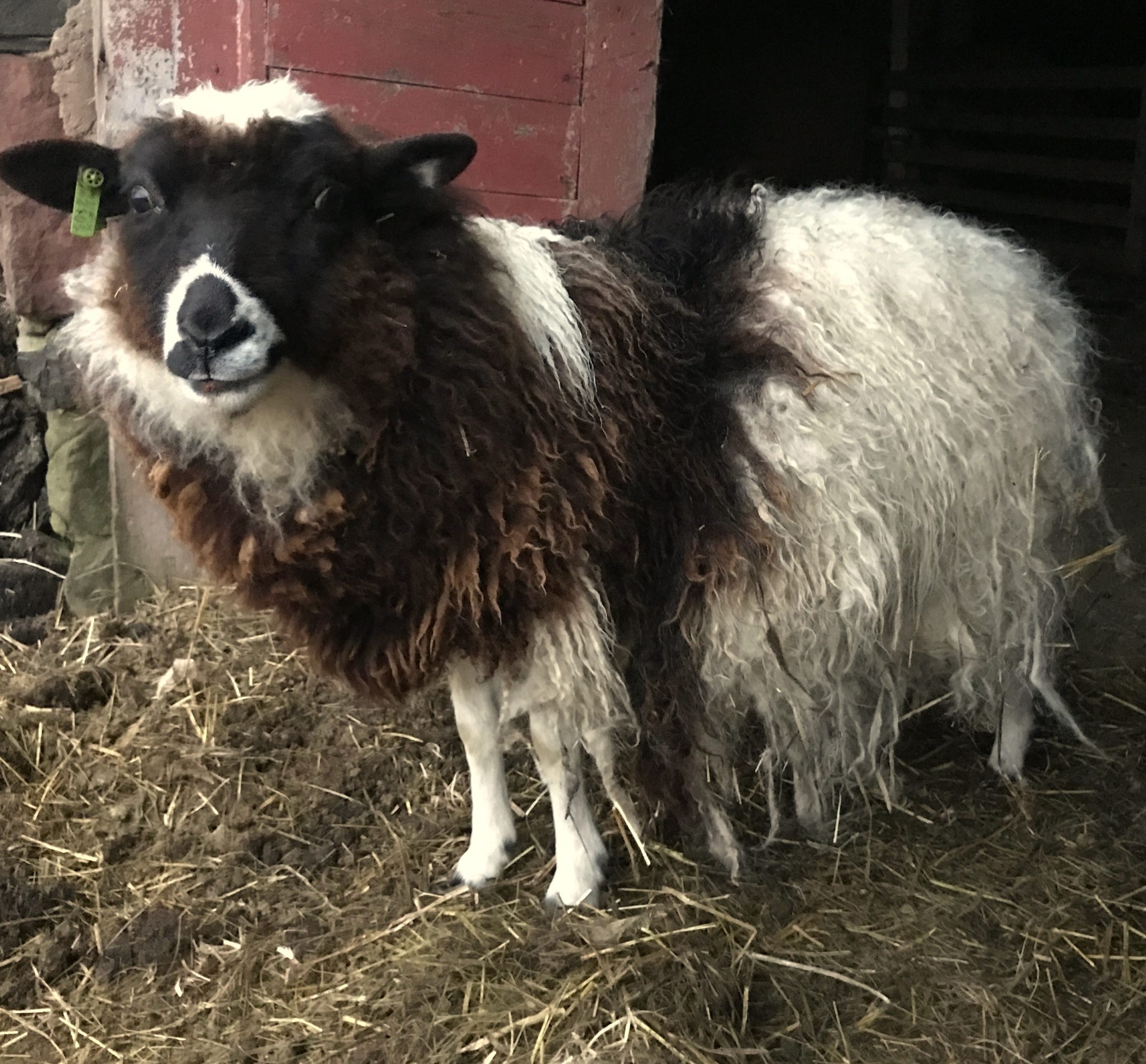Romancing the Roo
March 22, 2024
Our Shetlands are a breed of sheep known for being healthy, hardy, self-reliant and notoriously independent. They are considered one of the few “unimproved” breeds of sheep. This slightly insulting term refers to the fact that they still have many qualities that were bred out of other sheep.
Unlike the “improved” sheep breeds, our Shetlands still retain the original shades of black, brown and grey fleeces along with some very distinctive markings. Over the centuries, as the processing and dyeing of wool became industrialized, having anything other than completely white sheep in a flock was a serious liability. Anne and I, however, take great pride in having so many “black sheep in our family” and enjoy the visual diversity such a flock brings to our farm.
Another Shetland trait that was bred out of other sheep long ago was their ability to shed their wool - a process known as “rooing.” Unfortunately for us, this year, our self-reliant and independent flock has decided that after such an unusually warm, wet winter it’s time to rid themselves of their winter coats. We are only two weeks away from our annual shearing event but I’m somewhat worried that by the time it comes, all our sheep will be bald.
Last year we had 2,000 people watch our sheep get shorn and learn about their contribution to the local fiber-shed - and what it takes to make a product “from sheep to shawl”. This year, though, I wonder if our attendees will instead be watching as Anne and I collect the rooed wool from the trees surrounding our pasture while the shearer stands idle, having nothing better to do than to explain the history of rooing, and the romance of unimproved flocks.

